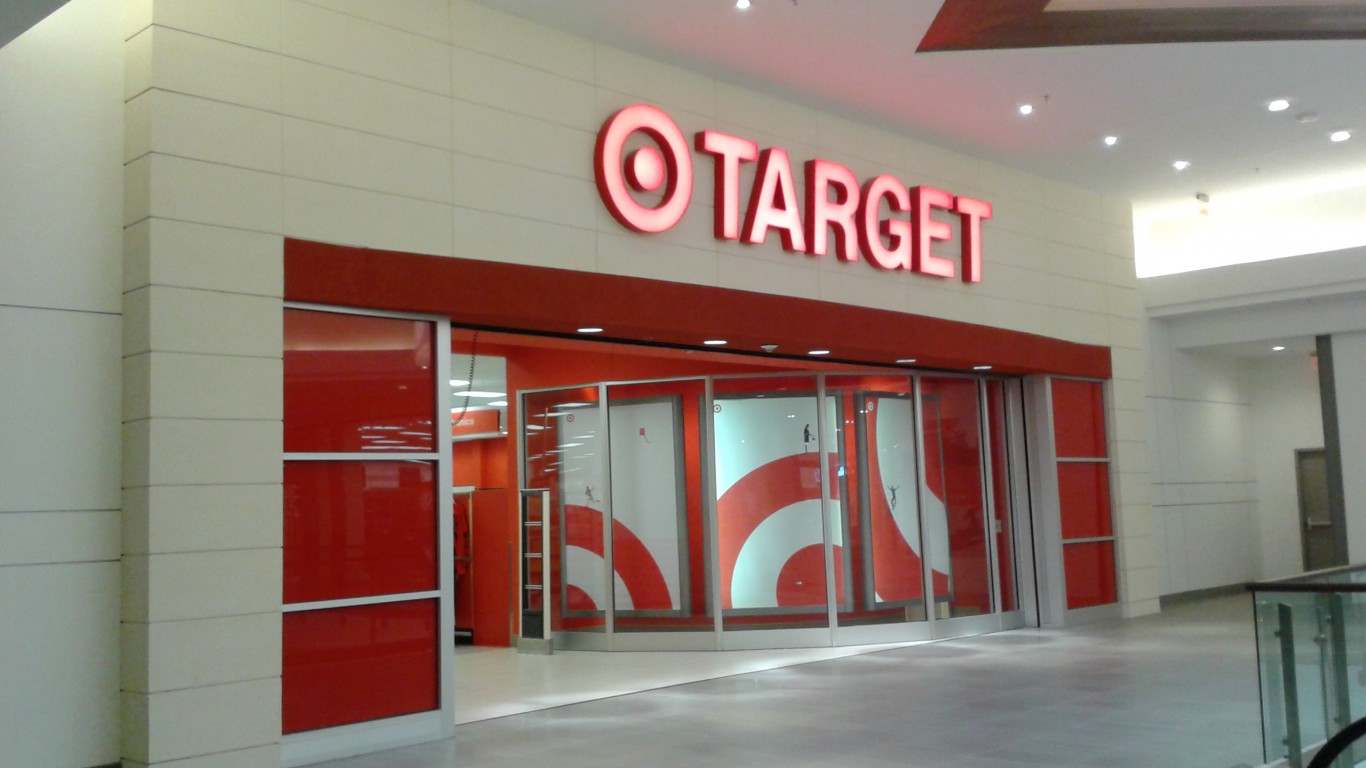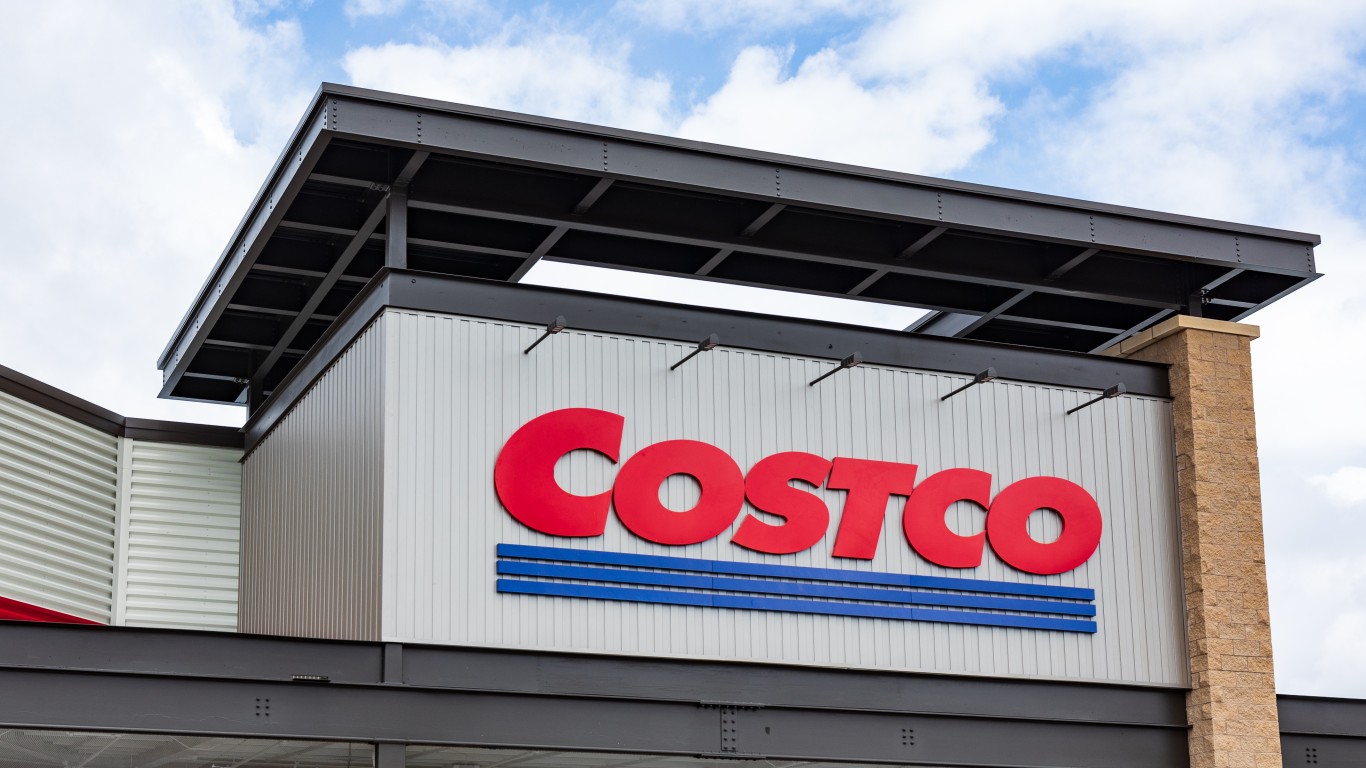
Big-box retailer Target Corp. (NYSE: TGT) provided preliminary data for its fiscal first quarter ending this month. The company withdrew its first-quarter guidance on March 25.
At the same time that it withdrew guidance, the company said that February comparable store sales were up 3.8% year over year, powered by late February traffic and sales in both its stores and digital channels as Americans stocked up on goods to see them through the coming COVID-19 lockdowns.
Traffic and sales at Target rose even more strongly beginning about the middle of March. In March, comparable store sales increased in the low double digits, reflecting mid-single-digit growth in stores and more than 100% growth in Target’s e-commerce channels. March sales jumped by 40% in both the essentials and food and beverage categories and by 20% in hardlines. Sales were down in the low single digits in the home category and by more than 30% in apparel and accessories.
Strong sales picked up even more after mid-April, with comparable-store sales up by 5% for the first three weeks, with store sales dropping by mid-teen percentages and digital sales jumping by more than 275%.
That’s the good news.
The bad news is that the company’s sales mix reflected the shift in purchases to lower margin products, and Target expects first-quarter operating margin to drop by 5%.
Chief Executive Officer Brian Cornell said:
Our strategy was built to be durable and sustainable in any environment and its strength is driving our business in the face of marked shifts in shopping behaviors caused by COVID-19. Because of our strong business model, we are able to make considerable investments to support our team, put protections in place, and adjust to serve our guests who are being advised to shelter in place and avoid stores. As a result, we are seeing record-setting digital growth, strong demand for our same-day fulfillment services and broad market-share gains across each of our core categories. While this crisis will certainly put near-term pressure on our profitability, that pressure is far outweighed by doing right by our team and our guests.
Chief Financial Officer Michael Fiddelke added:
While we expect our short-term profitability to be affected by COVID-19, we expect to have the financial capacity to emerge from this crisis in a position of strength. Having established an even stronger bond with our guests during this unprecedented time, we expect to have a compelling long-term opportunity to grow profitably and gain additional market share in the years ahead.
Target also announced Thursday morning that it is extending until the end of May its $2 per hour temporary wage increase and other benefits announced earlier.
Investors liked the sound of increased sales but did not care for the news about lower operating margins. In Thursday’s premarket, Target shares traded down as much as 6%. In the noon hour, shares were off about 1.5% at $105.25, in a 52-week range of $70.03 to $130.24. The stock’s 12-month price target is $124.39.
Travel Cards Are Getting Too Good To Ignore (sponsored)
Credit card companies are pulling out all the stops, with the issuers are offering insane travel rewards and perks.
We’re talking huge sign-up bonuses, points on every purchase, and benefits like lounge access, travel credits, and free hotel nights. For travelers, these rewards can add up to thousands of dollars in flights, upgrades, and luxury experiences every year.
It’s like getting paid to travel — and it’s available to qualified borrowers who know where to look.
We’ve rounded up some of the best travel credit cards on the market. Click here to see the list. Don’t miss these offers — they won’t be this good forever.
Thank you for reading! Have some feedback for us?
Contact the 24/7 Wall St. editorial team.




